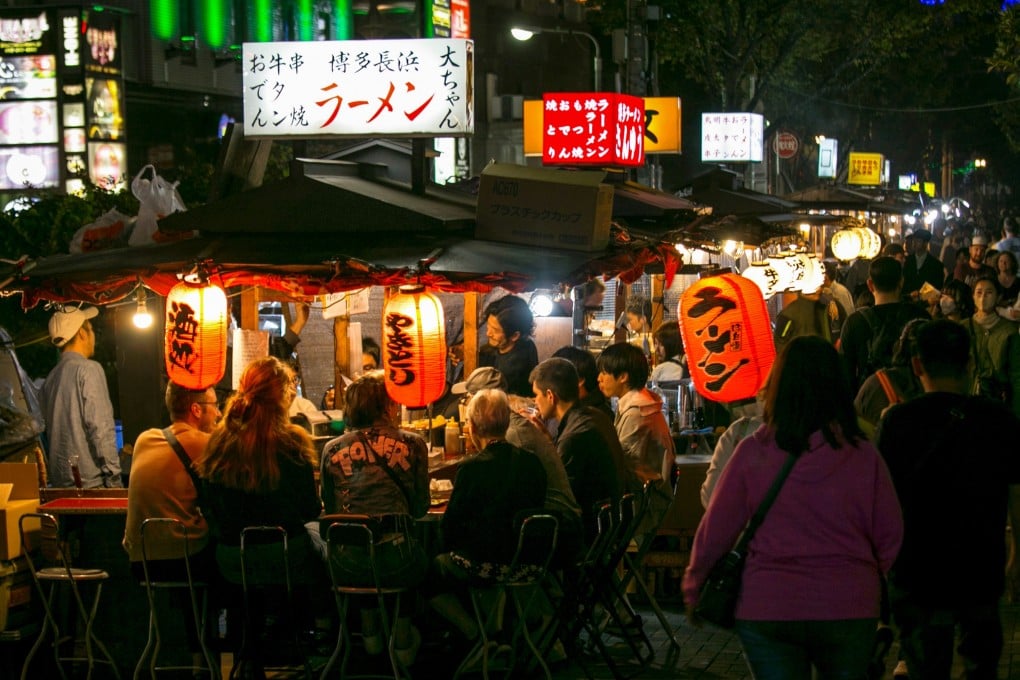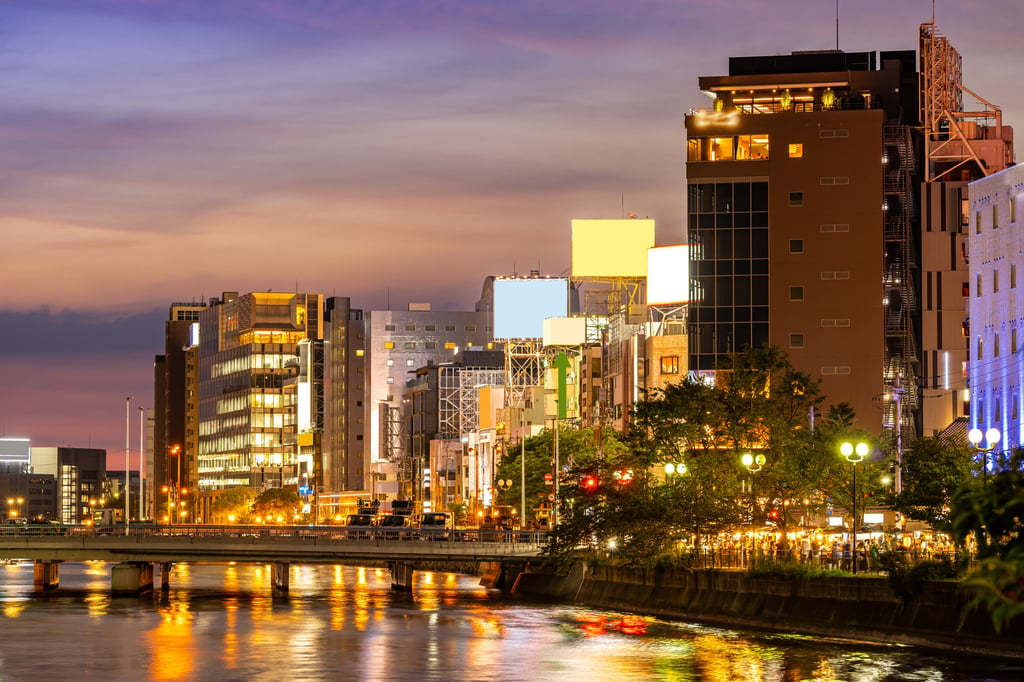Fukuoka, Japan’s yatai street stall culture is keeping the city’s food scene vibrant
The best yatai include those that are hipsterish, specialise in mentaiko or are halal-friendly – even one owned by a French chef

It’s 7pm and I’m elbow-to-elbow with a fellow diner, perched on one of 10 stools surrounding a street stall. Not that I’m complaining; the chef who’s just prepared my meal has even less space at his disposal.
His workplace is a yatai, a tiny food stall on wheels. A dying breed elsewhere in Japan, in Fukuoka, they’re thriving.
Like many Japanese cities, Fukuoka was pummelled by American bombs during World War II. After the war, hastily erected street-food stands appeared where restaurants once stood across the country.
Ahead of the 1964 Tokyo Olympics, however, the powers that be decided it was time for a spruce-up; makeshift street-food stalls didn’t fit with their vision of a shiny new post-war Japan.

Yatai owners shut up shop and found alternative work or scrimped together enough money to open fixed restaurants.
